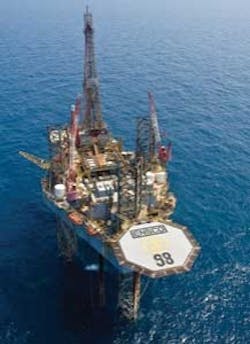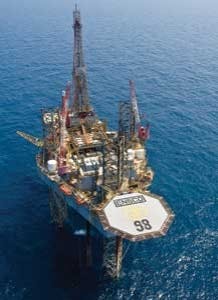Latin American countries opening to outside operators
Jose Valera
Andrew Stanger
Mayer Brown
With oil reserves second only to the Middle East and also with significant gas reserves, Latin America has become a natural focus of oil and gas exploration in recent years. As the countries in this region increasingly turn their attention to their offshore prospects, which range from Brazil's massive fields to lesser known areas elsewhere, all are welcoming the technology, capital, and expertise of foreign companies but under terms and conditions that vary greatly from country to country.
Brazil
Brazil has the potential to become one of the world's leading oil producers, with recently discovered offshore pre-salt reserves estimated to exceed 50 Bboe. Petrobras, the giant state-run oil company, plans to spend $224 billion over the next five years with the goal of doubling its oil production and export capacity.
Brazil's oil and gas future is offshore. According to the Brazilian National Agency of Petroleum, Gas and Biofuels (ANP), about 92% of the country's proved oil reserves and 82% of its proved gas reserves are offshore. About 90% of the country's current oil production is from offshore. Brazil currently hosts 33% of the world's fleet of floating production units.
Brazil has taken steps to take more control of the pre-salt areas, which were discovered in 2007 when Petrobras first drilled in the Tupi (now Lula) field. Through the recent enactment of a separate legal regime applicable to the development of "strategic areas," a loosely defined term that includes the pre-salt regions, Brazil now mandates that private companies hold an interest in a production sharing contract under which Petrobras must serve as the operator and also hold a minimum 30% working interest.
The award of these production sharing contracts will be made competitively on the basis of the lowest bid for profit oil share. Petrobras itself may be awarded contracts without a competitive bidding process.
Brazil's traditional concession contract regime will remain in place outside of the "strategic areas." Concessions granted in the pre-salt region prior to the 2009 enactment of the new law are grandfathered.
Brazil has recently announced its 11th bid round, which covers 174 blocks (87 of which offshore) along the equatorial coast outside of the pre-salt region. As such, the areas will be subject to the concession contracts. The bid process is to begin in September and conclude in December.
Under the concession contracts, the contractor pays a signature bonus, a royalty at a rate of 5-10%, and various taxes, which payments combined allow an operator to keep 25-30% of gross revenues. These contracts generally impose a schedule of minimum work obligations with an exploration phase lasting three to seven years.
Concession contracts for the 11th round are likely to require financial guarantees and will allow termination of the contract for failure to comply with the minimum exploratory program. Although payment of 1% of gross revenues from a field as a special participation has long been a part of these contracts, the ANP has indicated that under the concessions to be awarded, half of this amount must be invested in previously approved projects in Brazilian accredited universities and institutes.
No bid rounds have been announced yet for the award of the production sharing contracts in the pre-salt region. The government reportedly is still working on the model form PSC.
Mexico
Awash for decades in easily-accessible oil, Mexico's treasury is grappling with declining oil production, particularly at the massive offshore Cantarell field, which now produces only a quarter of what it did in 2004. Many expect that Mexico's oil future lies in the deep waters of the Gulf of Mexico, where the expense and complexity of drilling operations has limited the ability of state-owned monopoly Pemex to expand its operations there.
Reports indicate that Pemex may increase its offshore development plans to address Mexico's narrowing gap between oil production and consumption. ENSCO 98, a LeTourneau Class 82-SD-C self-elevating cantilever jackup rig, is currently working for Pemex offshore Mexico. Photo courtesy Ensco.
Mexico historically has shunned international E&P companies, but now in an effort to draw more foreign technology and know-how, it has sought to create a friendlier contract regime. However, this effort is beset with political challenges and even the watered-down reform passed in 2008 faced protracted legal challenges. The ultimate result was a law permitting Pemex to enter into E&P contracts under which it would reimburse costs and pay a fixed fee in cash per barrel of delivered production. Incentive-based bonuses in cash may also be paid under certain specified circumstances.
The law in Mexico does not allow for ownership in Mexico of locally produced oil, nor compensation on the basis of the value of production. This precludes all forms of production sharing arrangements and compensation in kind.
After delays due to legal challenges to implementing regulations, Mexico has been cautious in rolling out the new contracts. The first tender was announced last March, and it covers only three aging onshore fields in need of enhanced recovery methods. For those blocks, the contractor will be paid only a per-barrel fee, supplemented by a partial recovery of costs. No incentives are being offered. The Calderon administration remains optimistic that these contracts will successfully lure foreign companies and has announced plans to use them in other bidding rounds scheduled for next year.
The true test will come when Mexico seeks bids for the deepwater areas on which much of its energy future depends. Pemex officials say they plan to announce the first tender for offshore blocks in the first half of 2012 and expect to use incentive-based contracts. It remains to be seen how the offshore E&P industry will respond to contracts with very limited upside to compensate for exploration risk.
Venezuela
Venezuela's proved oil and gas reserves dwarf those of other Latin American countries. Although the Chavez administration is regarded widely as unpredictable and less than friendly to foreign companies, several international oil companies have taken the long view and invested heavily in the country.
In Venezuela, separate rules apply to oil contracts compared to gas contracts. With large, well-developed crude oil reserves, Venezuela is generally more exacting in granting oil contracts. All oil projects must be carried out by a joint venture company majority-owned by Petroleos de Venezuela S.A. (PdVSA), the state-owned oil company. Historically, Venezuela affords little stability, with tax and royalty rates liable to jump and the threat of nationalization looming when a licensee does not accept changes to its contract.
In contrast to Venezuela's oil reserves, non-associated gas fields are severely underdeveloped and found largely offshore, which combine to give foreign oil companies more leverage. The law relating to the development of non-associated natural gas is intended to provide more favorable terms to private companies. The government has reduced royalty and income tax rates on non-associated natural gas projects and allows private companies to own all of the interests in projects. However, PdVSA reserves the right to take over up to a 35% carried working interest.
While non-associated gas projects appear to offer some promise, there are disadvantages to operating in Venezuela, in that PdVSA would constitute the only outlet for offshore gas production.
As for exports, the government has advanced plans to build an LNG facility for which offshore producers would serve as dedicated feed gas suppliers. Plans for pipeline gas exports through Colombia have missed several target dates. Same plans through Brazil have been shelved. As for the domestic market, natural gas is heavily subsidized and available prices may not compensate for production costs and risks.
Argentina
Argentina's onshore oil and gas fields have declined rapidly over the last few years, causing the country to assess its offshore potential. Argentina is a newcomer to deepwater drilling. When the state-owned energy company, ENARSA, and YPF, the largest producer in the country, announced plans to drill exploration wells off of the coast of Buenos Aires province in 2010, it was the first major new offshore exploration project for the country in more than 30 years. Argentina says it will license 31 offshore blocks this year in the hopes of discoveries similar to Brazil's.
Jurisdiction over the country's oil and gas resources has shifted to the provinces, although offshore areas beyond 12 nautical miles from the coast are subject to federal jurisdiction and, unless an exploration permit was previously granted to a private holder, all permits in the area are held by ENARSA. Private companies must associate with ENARSA to carry out E&P operations in federal waters.
Argentina grants exploration licenses (with the acreage diminishing at intervals) that may be followed by a production concession lasting 25 years. A royalty rate of 12% paid in cash (or in kind, if requested by the government entity) is typical, but depends on the location of the reserves and may be reduced to as low as 5% under some circumstances. To encourage development of crude oil reserves, Argentina adopted the "Oil Plus" plan in 2008. This provides export duty credits to companies who increase production and reserves by a certain threshold. In turn, the "Gas Plus" plan offers to exempt production from certain new discoveries from local price controls.
Colombia
Colombia has devoted considerable effort to increasing oil and gas exploration and production by attracting foreign participation, and the results are impressive. The country is on target to achieve in the short term its goal of 1MMboe/d of production. E&P contracts are granted by a state licensing agency (ANH) pursuant to competitive bidding and there is no requirement for an association with a state-owned company. The fiscal regime consists of royalty and income tax. State-controlled Ecopetrol competes in bid rounds on an equal footing with private companies.
The government has recently finished signing contracts after the 2010 bid round. This last round included the most offshore blocks of any bid round. No new offshore drilling has taken place in Colombia since 2008. At present offshore production in Colombia is limited to the Chuchupa gas field (Caribbean coast) operated by Chevron.
Peru
Much of Peru's proven oil and gas wealth is onshore, but recent offshore activity suggests some potential for larger finds.
Although its current offshore production in the northwest is relatively small, some have speculated that, by attracting investment, the country could substantially increase offshore production.
As in Colombia, E&P contracts are granted by a state licensing agency (Perupetro) pursuant to competitive bidding and there is no requirement for an association with a state-owned company. The fiscal regime consists of royalty and income tax. State-owned Petroperu competes on an equal footing with private companies.
The authors
Jose Valera is a partner in the Houston office of Mayer Brown's Corporate & Securities practice. He focuses his practice on domestic and international energy transactions, and has more than 25 years of legal experience representing oil, gas, and electric energy companies throughout the United States, Central America, South America, Africa, Asia, and the Caribbean.
Andrew J. Stanger is an associate in the Houston office of Mayer Brown's Corporate & Securities practice. He represents public and private companies in a variety of corporate transactions, including mergers and acquisitions, securities offerings and general corporate matters.
Offshore Articles Archives
View Oil and Gas Articles on PennEnergy.com


